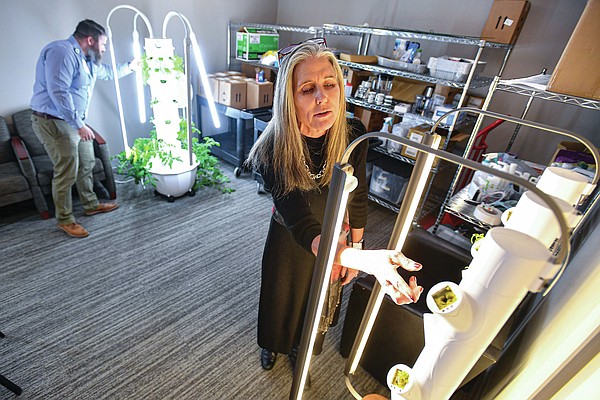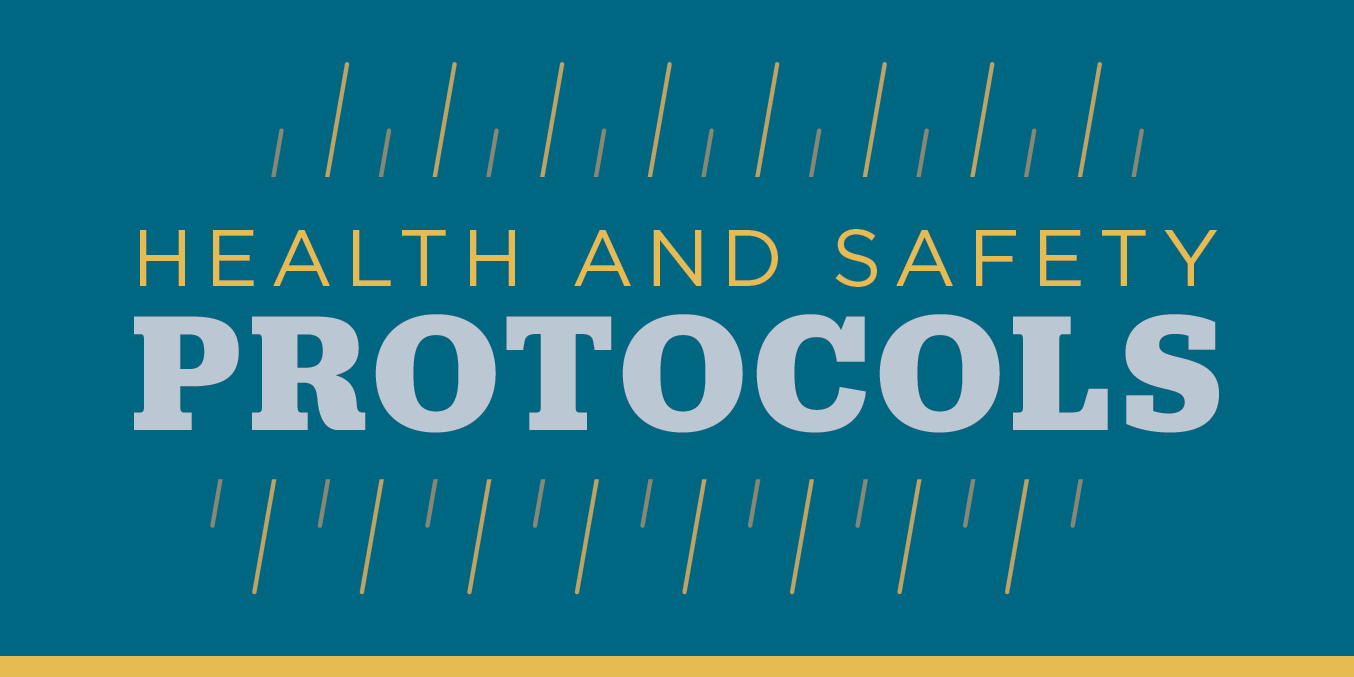[ad_1]
FORT SMITH — Arkansas Colleges of Health Education officials believe their new graduate degree program will bolster both the school’s offerings and health in the community.
The school announced Jan. 18 the Higher Learning Commission, a regional accrediting organization, gave it the go-ahead to launch a master of public health degree with a scheduled start in fall 2024. Students in the program will be able to concentrate in either nutrition or rural and community health.
The new program is designed to complement the school’s other graduate programs and provide people working in public health a chance to expand their credentials, according to a news release. The institution is already home to doctorate programs in osteopathic medicine, occupational therapy and physical therapy, as well as a master of science program in biomedicine.
The program will also support community health and nutrition outreach engaged by the colleges’ Research Institute Health and Wellness Center.
“We are excited to add this additional degree to our programs as it closely aligns with the ACHE mission of addressing the overall wellness and quality of life of our region,” Kyle Parker, president and chief executive officer, said in the release.
Benny Gooden, senior executive assistant to the provost, said Monday many public health programs “parallel” other degree programs institutions offer to help people better understand the environment in which they are probably going to work.
HEALTH OUTCOMES
Elizabeth McClain, the school’s chief wellness officer and director of the new master’s program, said the colleges looked at what it could do to improve Arkansas’ health outcomes when devising the program.
The United Health Foundation’s America’s Health Rankings platform ranked Arkansas the 48th healthiest state in its 2022 report, surpassing only Mississippi and Louisiana. The ranking was based on ratings of measures across five categories of health. These included:
• Social and economic factors: Community and family safety, economic resources, education and social support and engagement.
• Physical environment: Air and water quality and housing and transit.
• Clinical care: Access to care, preventive clinical services and quality of care.
• Behaviors: Nutrition and physical activity, sexual health, sleep health and smoking and tobacco use.
• Health outcomes: Behavioral health, mortality and physical health.
High rates of premature death, household food insecurity and smoking are among the health-related challenges Arkansas faces, according to the report.
McClain said one of the primary goals of a master of public health program is to teach students how social determinants of health — the conditions in which people are born, grow, work, live and age — impact health and figure out how to address “gaps” they create on individual, community and population levels. Graduates may find work in places such as health departments, health care organizations and public health policy.
The rural and community health concentration in the school’s new degree program will help graduates understand how to help change public and health policy to move forward with resources a population needs, according to McClain. She said rural culture is “very different” from urban culture in terms of how and where people live and how they experience health and illness, including when they’ll go to hospitals for prevention checks.
“If they’re out in the fields, they’re not going to take a break,” McClain said. “We have maybe a 9-5 job and we think that’s how it works. If there’s something going on, the individuals will not take the time to drive three hours to get to the hospital to do some prevention check. Those type of things, we need to look at that, change policy and have that access that works well with what they need in their environment.”
McClain said improving health literacy, or a person’s ability to understand and appropriately act on health care information provided to them, is also important.
Blake Metcalf, the school’s director of clinical and community nutrition who will oversee the public health degree’s nutrition concentration, said the program will facilitate learning for people across multiple disciplines, including physicians, dietitians and registered nurses.
The nutrition concentration will incorporate a teaching kitchen through which people can learn in a hands-on setting things such as how to prepare and find food.
“It’s a very unique experience, and we’ll be able to take that to this kind of multidisciplinary team that I’ve just described previously and hopefully create this new cohort of preventive, nutrition-minded people that want to take a little bit different approach to medicine and health care in general,” Metcalf said.
FLEXIBILITY
However, while in-person seminars for the program will be based out of the school’s Research Institute Health and Wellness Center, most of the course content will be offered online, providing some flexibility for working health professionals, according to the news release.
“We will always have the opportunity for online, except for things that are experiential, like the teaching kitchen, and we may have some seminars where we really want to engage our students in some activities that you’re just not going to get the same experience if you’re online,” McClain said.
McClain said students can also engage in the program on either a part-time or full-time basis. A full-time student will be able to complete the program in two years; part-time students will have up to five years to finish.
The curriculum, which is still being determined, will include 45 semester hours of instruction, according to McClain. This will include 24 hours of core instruction everybody in the program will take and 15 hours pertaining to their chosen concentration. Students will also have three hours each devoted to working on practicum and capstone projects that are intended to help the community.
Susan Devero, the colleges’ executive director of marketing, communications and community relations, said the public health degree program will initially have the capacity for about 50 students. She estimated tuition for the entire program at about $20,000.
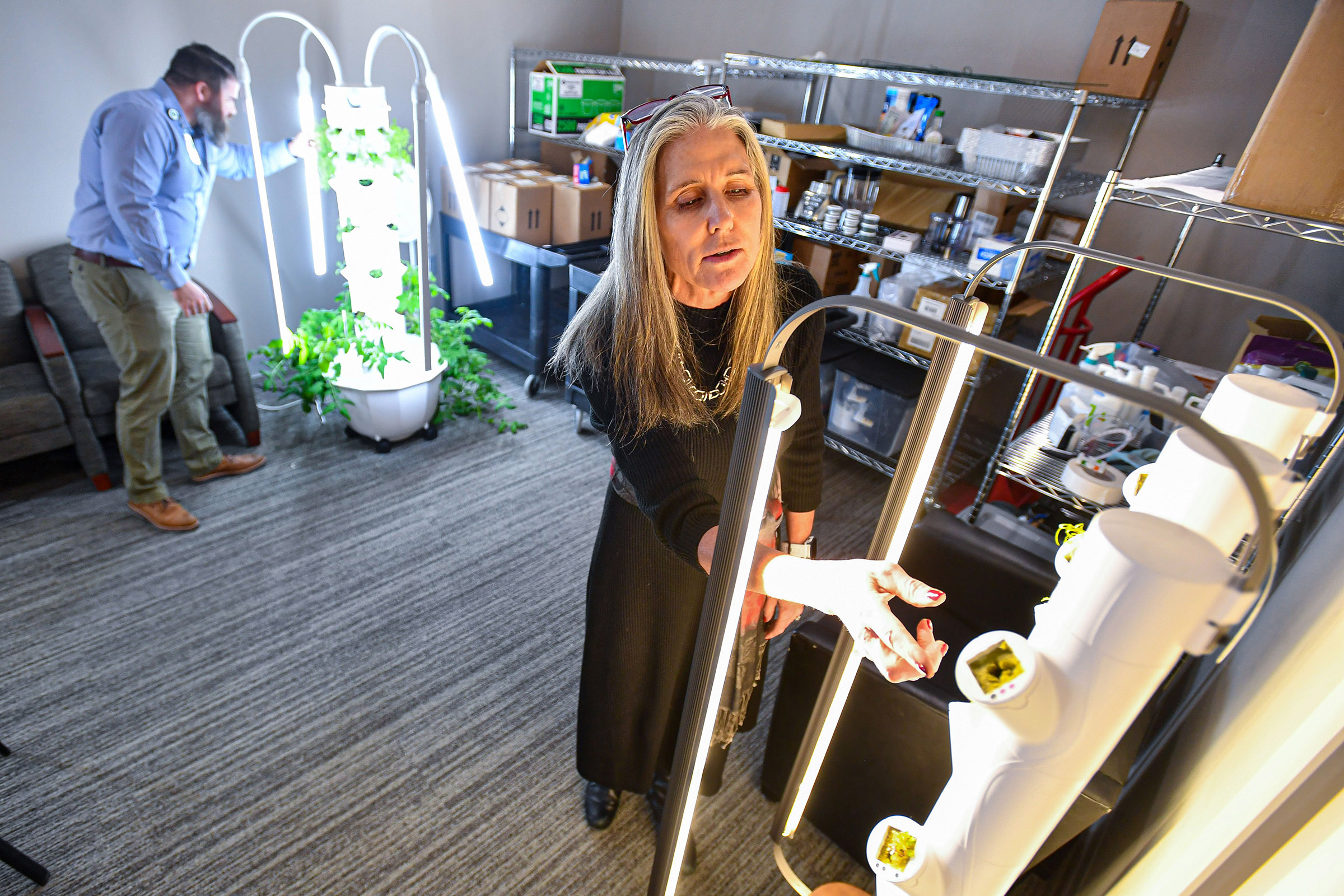 Elizabeth McClain, Arkansas Colleges of Health Education chief wellness officer, and Blake Metcalf, ACHE director of clinical and community nutrition, tend to tower gardens Thursday at the school’s Research Institute Health and Wellness Center in Fort Smith. The school received approval from the Higher Learning Commission to begin a new master of public health degree, which will offer two concentration areas in nutrition and rural and community health, starting in the 2024 fall semester. Visit nwaonline.com/photo for today’s photo gallery. (River Valley Democrat-Gazette/Hank Layton)
Elizabeth McClain, Arkansas Colleges of Health Education chief wellness officer, and Blake Metcalf, ACHE director of clinical and community nutrition, tend to tower gardens Thursday at the school’s Research Institute Health and Wellness Center in Fort Smith. The school received approval from the Higher Learning Commission to begin a new master of public health degree, which will offer two concentration areas in nutrition and rural and community health, starting in the 2024 fall semester. Visit nwaonline.com/photo for today’s photo gallery. (River Valley Democrat-Gazette/Hank Layton)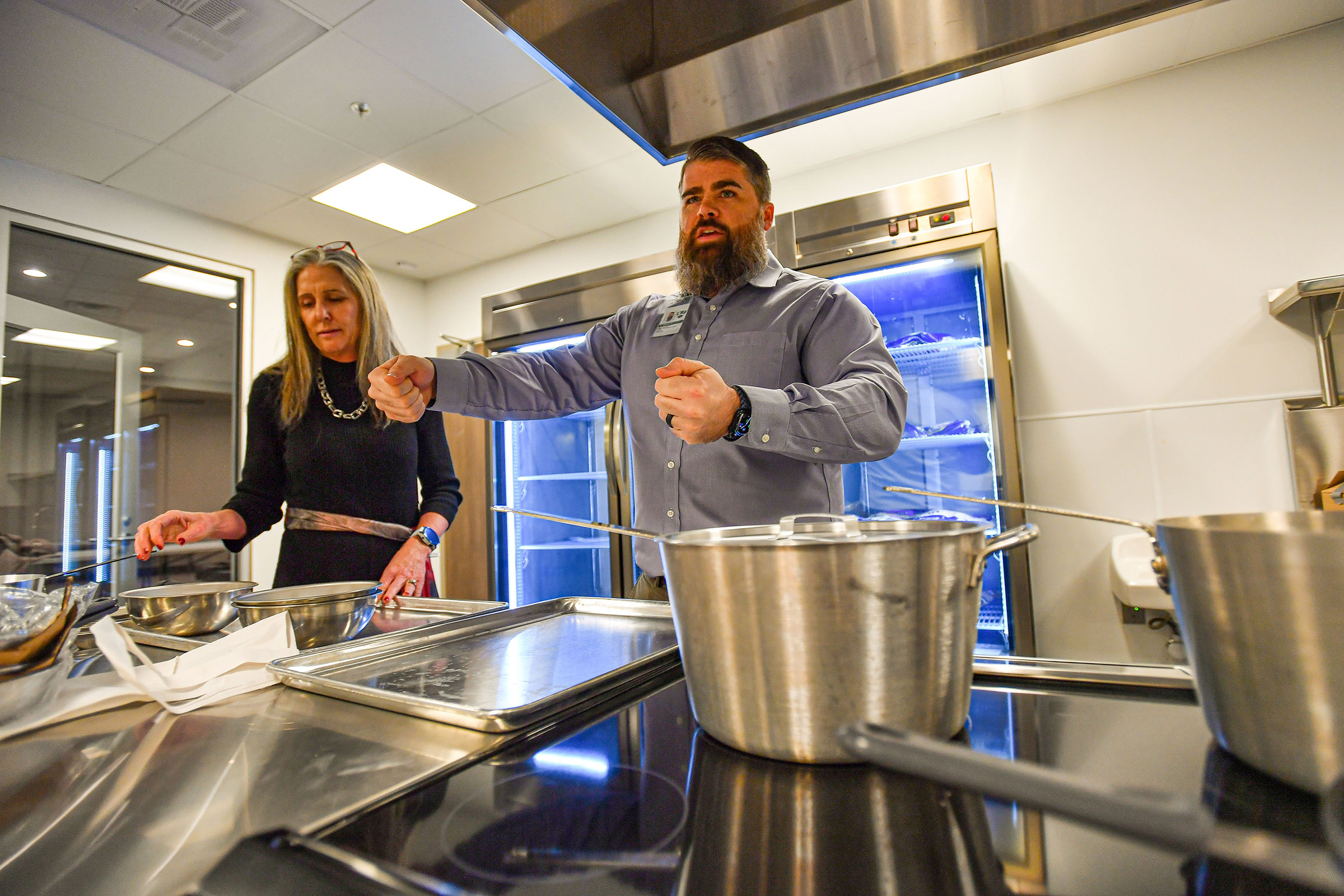 Elizabeth McClain, Arkansas Colleges of Health Education chief wellness officer, and Blake Metcalf, the school’s director of clinical and community nutrition, set out items in a teaching kitchen Thursday at the school’s Research Institute Health and Wellness Center in Fort Smith. The school received approval from the Higher Learning Commission to begin a new master of public health degree, which will offer two concentration areas in nutrition and rural and community health, starting in the 2024 fall semester. Visit nwaonline.com/photo for today’s photo gallery. (River Valley Democrat-Gazette/Hank Layton)
Elizabeth McClain, Arkansas Colleges of Health Education chief wellness officer, and Blake Metcalf, the school’s director of clinical and community nutrition, set out items in a teaching kitchen Thursday at the school’s Research Institute Health and Wellness Center in Fort Smith. The school received approval from the Higher Learning Commission to begin a new master of public health degree, which will offer two concentration areas in nutrition and rural and community health, starting in the 2024 fall semester. Visit nwaonline.com/photo for today’s photo gallery. (River Valley Democrat-Gazette/Hank Layton)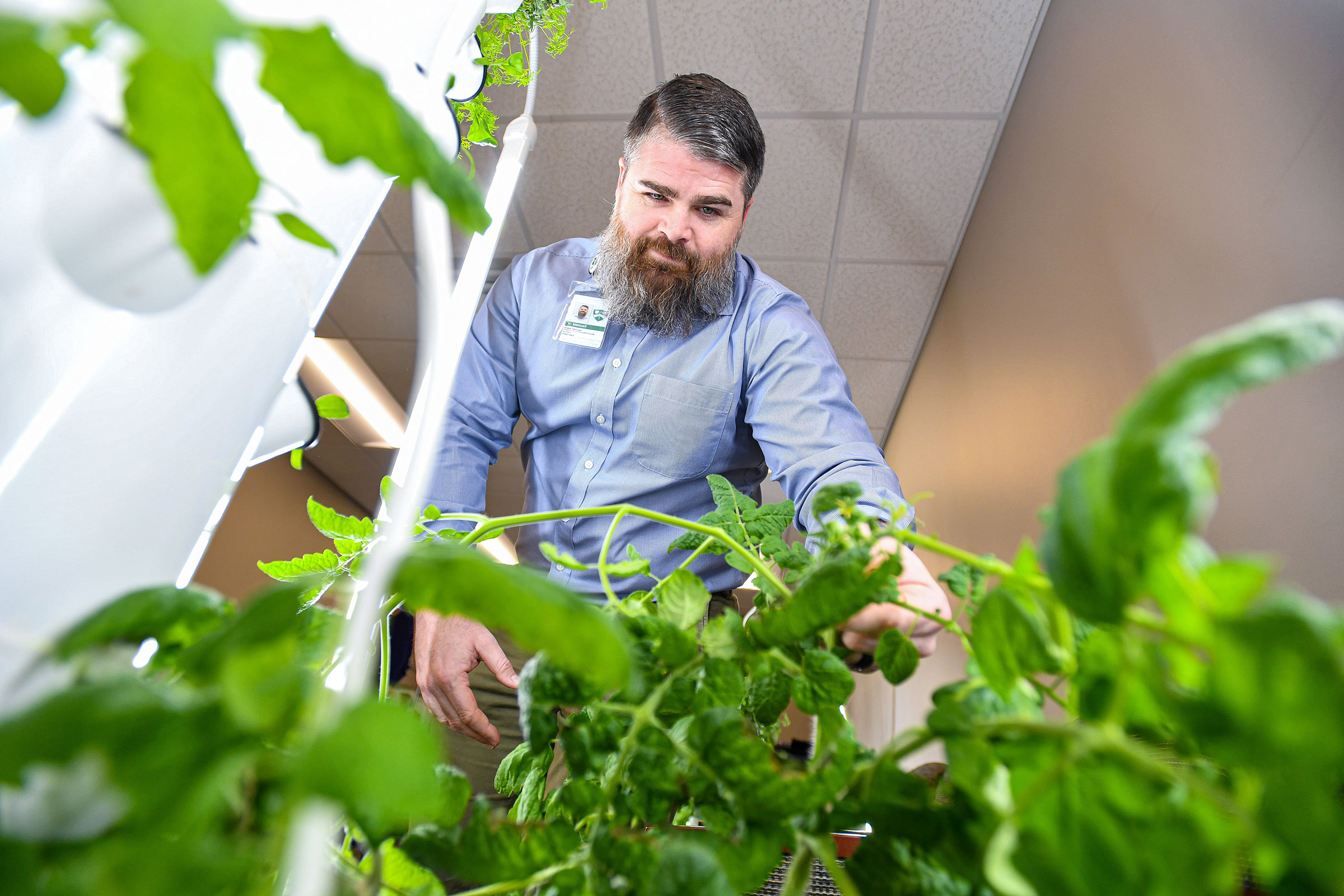 Blake Metcalf, Arkansas Colleges of Health Education director of clinical and community nutrition, tends to a tower garden, Thursday, Jan. 26, 2023, at the ACHE Research Institute Health and Wellness Center in Fort Smith. ACHE received approval from the Higher Learning Commission to begin a new master of public health degree, which will offer two concentration areas in nutrition and rural and community health, starting in the 2024 fall semester. Visit nwaonline.com/photo for today’s photo gallery. (NWA Democrat-Gazette/Hank Layton)
Blake Metcalf, Arkansas Colleges of Health Education director of clinical and community nutrition, tends to a tower garden, Thursday, Jan. 26, 2023, at the ACHE Research Institute Health and Wellness Center in Fort Smith. ACHE received approval from the Higher Learning Commission to begin a new master of public health degree, which will offer two concentration areas in nutrition and rural and community health, starting in the 2024 fall semester. Visit nwaonline.com/photo for today’s photo gallery. (NWA Democrat-Gazette/Hank Layton)
[ad_2]
Source link
